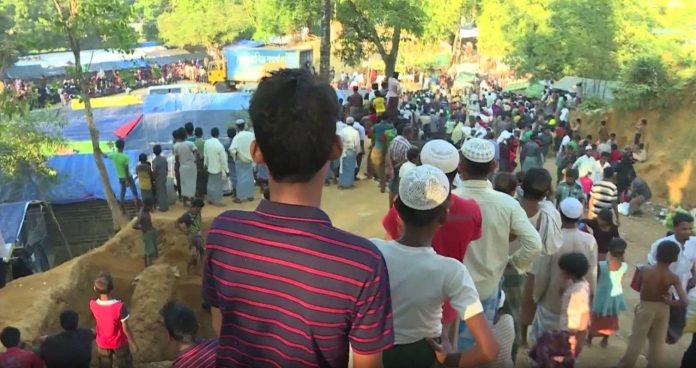FROM THE DVB NEWSROOM
Six years ago, on Aug. 25, 2017, an estimated 10,000 Rohingya were killed and more than 300 villages in northern Arakan State were burned down in a scorched earth campaign by the Burma Army, forcing more than 700,000 Rohingyas to flee to Bangladesh for safety. The U.N. High Commissioner for Human Rights Volker Türk expressed his wish for the Rohingya to be able to return to their homes in a safe and dignified manner and have them be recognized as part of Burma’s ethnic diversity.
Tom Andrews, the U.N. Special Rapporteur on the situation in Burma, called on the international community to hold the military accountable for its mounting war crimes and crimes against humanity, including genocide. “Responsibility for the immense suffering of the Rohingya starts at the top. Min Aung Hlaing, who led the genocidal campaign, is now at the head of an illegal and illegitimate military junta that is attacking civilian populations throughout Myanmar. He must be brought to justice and be made to answer for his crimes,” said Andrews.
The Special Advisory Council for Myanmar (SAC-M) pointed out the U.N. Security Council failure for not referring the genocide in Burma to the International Criminal Court (ICC). Around 600,000 Rohingya remain in Burma and have been facing more severe restrictions since the 2021 military coup. “The consequences of the genocide are still being lived by the Rohingya today. The international community failed to protect the Rohingya then and it is utterly failing to protect the Rohingya now,” said Yanghee Lee.
The National Unity Government (NUG) Human Rights Minister Aung Myo Min said that it will cooperate with international justice mechanisms, including the genocide case at the International Court of Justice (ICJ). Aung Myo Min and NUG Foreign Minister Zin Mar Aung attended an online Rohingya genocide remembrance day event. She said the NUG plans to rewrite the 1982 Citizenship Law, which was designed by a previous military regime to oppress and discriminate against Rohingya.
Khin Ohmar, the founder of human rights group Progressive Voice, called on the NUG to meet with the government of Bangladesh to deter it from cooperating on a controversial repatriation plan. Nearly one million Rohingya live, temporarily, in refugee camps in Bangladesh waiting to be allowed to return to their homeland. Human rights activists from Burma, Bangladesh, Thailand and the U.S. attended the online event to commemorate Rohingya genocide remembrance day. They called for justice and accountability.



